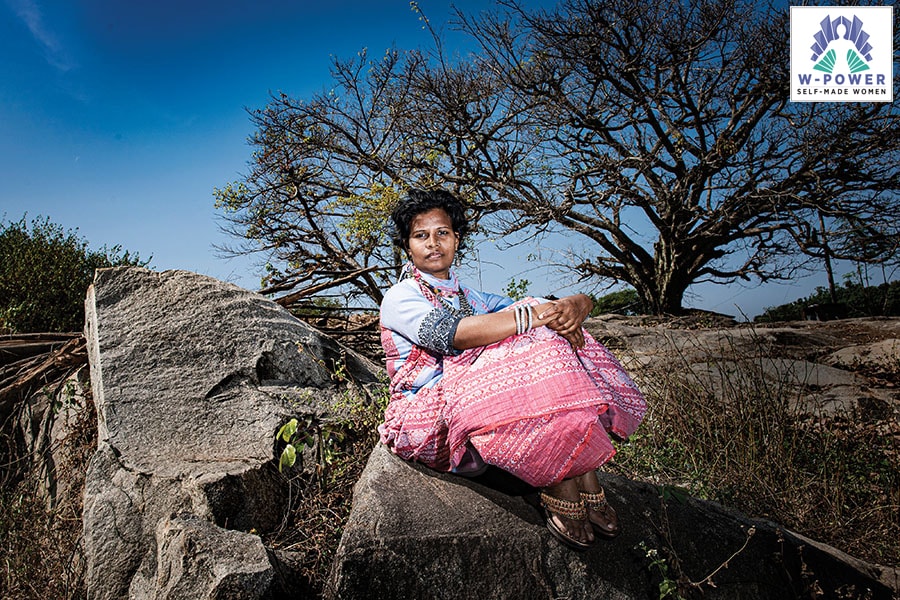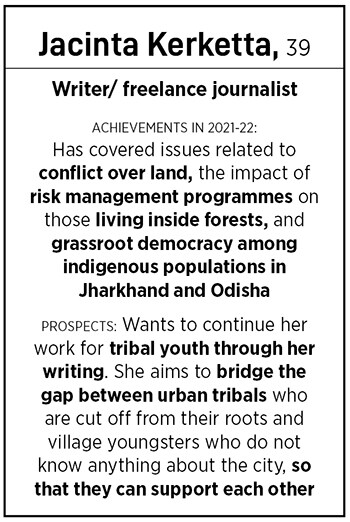
Jacinta Kerketta: Becoming the voice of indigenous communities
While Jacinta Kerketta's poetry is about the lives and losses of indigenous communities in Jharkhand, her writing is about the conflict over land, the impact of risk management programmes on those living inside forests, and grassroots democracy among indigenous populations
 Jacinta Kerketta, Writer and freelance journalist
Image: Amit Verma
Jacinta Kerketta, Writer and freelance journalist
Image: Amit Verma
Jacinta Kerketta’s poetry reverberates with the lives and losses that the indigenous communities in India are grappling with at a daily level.
Born in the Oraon Adivasi community of West Singhbhum district of Jharkhand, the 39-year-old is also an independent journalist. “In the past one year, I have travelled through Jharkhand and Odisha and have continuously written about issues related to conflict over land, the impact of risk management programmes on those living inside forests, and grassroot democracy among indigenous populations,” says Kerketta, who has a master’s degree in mass communication from St Xavier’s College in Ranchi. “I have also tried to highlight the different questions and perspectives of these indigenous populations through my poetry, and have published my poems at national and international levels.”
The displacement of indigenous communities in the name of development and the continuous appropriation of their natural resources, the colonial mindset prevalent within our country, the struggle of indigenous communities to save their water, forests and land, their core issues and philosophy of their life are at the centre of my writings, she adds. “My poetry is inspired by the concept of ‘universal value’ that is still alive among the indigenous communities who live close to nature.”
For her journalistic work, Kerketta is inspired by how to stop the establishment of only a single aspect where coverage of any event or story is concerned, and how to make people aware of other aspects of which they might be unaware, so that they are able to understand grassroot problems from a new perspective.
 Kerketta is also working on short poems and diaries for children, which are published in the magazine Cycle, which is published by the Bhopal-based Iktara Trust. These writings are about life in tribal areas and its philosophy. “Children grow up very quickly, and they become citizens of the country,” she says. “The stories they never hear, they cannot understand after growing up. Tribal populations have disappeared from children’s literature, and I am constantly trying to write for them so that they can read about the lives of the tribal world.”
Kerketta is also working on short poems and diaries for children, which are published in the magazine Cycle, which is published by the Bhopal-based Iktara Trust. These writings are about life in tribal areas and its philosophy. “Children grow up very quickly, and they become citizens of the country,” she says. “The stories they never hear, they cannot understand after growing up. Tribal populations have disappeared from children’s literature, and I am constantly trying to write for them so that they can read about the lives of the tribal world.”
(This story appears in the 30 November, -0001 issue of Forbes India. To visit our Archives, click here.)







